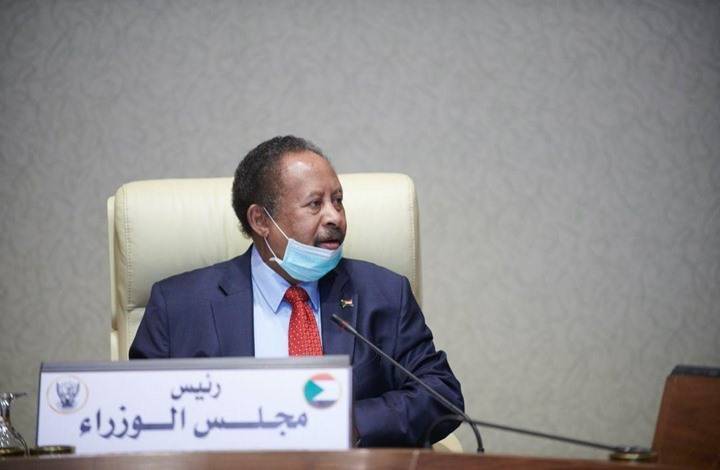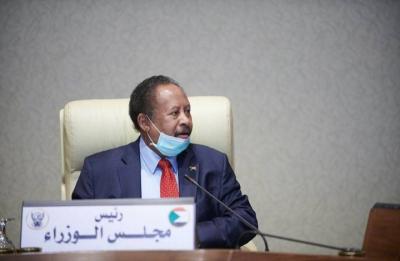Sudanese Prime Minister Abdullah Hamdok announced the dissolution of the transitional government in the country.
The official agency "SUNA" reported this evening, Sunday, that Hamdok issued a decision based on the provisions of the constitutional document for the transitional period, relieving the ministers and state ministers of the transitional government's positions, and ending the assignments of ministers tasked with managing the ministries. SUNA added that the decision indicated that the ministers would continue in their positions to manage affairs in their ministries until the formation of the new government and the completion of the handover procedures.
Hamdok directed, under the document, the Ministries of Cabinet Affairs, Finance and Economic Planning, Labor and Social Development, and other relevant entities to take measures to implement the decision.
SUNA clarified that all ministerial portfolios had been determined except for the Ministry of Education, for which consultations were still ongoing, revealing that the new government formation would be announced on Monday. The Council of Ruling Partners, composed of representatives from the Sovereign Council, ministers, the Forces of Freedom and Change, and the Revolutionary Front signatories to the peace agreement, had agreed on the formation of the new government headed by Hamdok following the dissolution of the previous cabinet.
Earlier this month, the Council of Partners agreed to submit a list of its nominees for ministerial positions in the new government slated to be formed under Prime Minister Abdullah Hamdok, with an announcement planned for the fourth of the month (last Thursday). However, it was decided to postpone the government announcement until the council set tomorrow, Monday, as the date for that step.
In December of last year, the head of the Sovereign Council, Abdel Fattah al-Burhan, announced the formation of a Council of Partners for the transitional period, composed of 29 members from military and civilian sectors as well as representatives from armed movements that signed the peace agreement in Juba last October.
At that time, this move faced widespread rejection from several Sudanese components, including the Cabinet and the Forces of Freedom and Change coalition, which stated in a statement that "the council does not possess any executive or legislative powers and should not affect the institutions formed by the constitutional document or encroach on their powers."
Since August 21, 2019, Sudan has been undergoing a transitional period lasting 39 months, set to conclude with elections, during which power is shared between the military council, the "Forces of Freedom and Change," which leads the popular movement, and the Revolutionary Front that includes several armed movements following its signing of the peace agreement with the Sudanese government in Juba.




